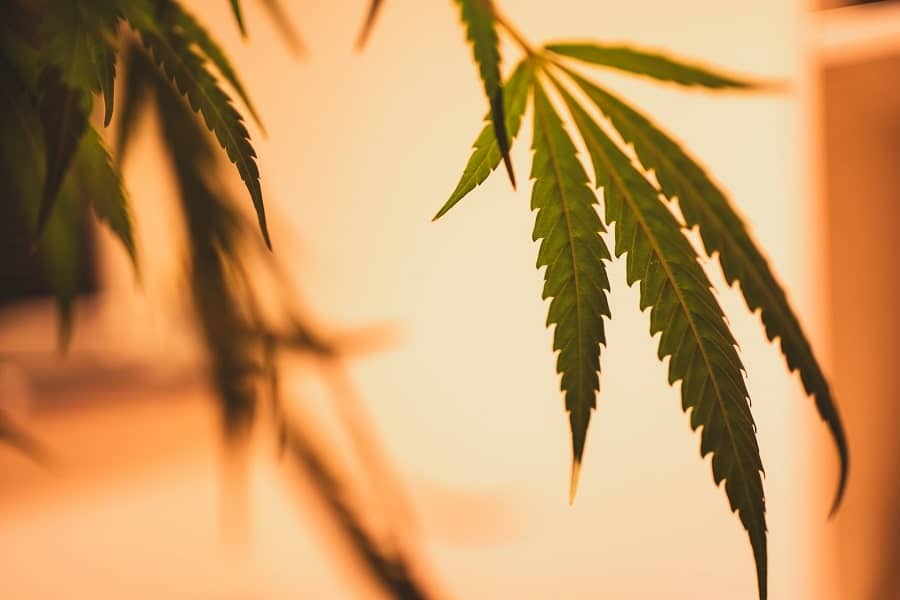Everything You Need to Know About Cannabis Laws in California
The rise of cannabis consumption and the establishment of cannabis dispensaries has grown exponentially in various states in the United States. Especially, the State of California—which is the first state ever to legalize marijuana’s possession, consumption, and cultivation.
Since its legalization, California’s economy has improved through the collection of taxes and fees due to cannabis-related activities. However, federal law still treats cannabis as an illegal substance whether intended for medical and recreational use. On a federal level, it’s still classified as a Schedule 1 prohibited substance—determined to have a high potential for abuse.
This ban on cannabis-related activities has been challenged and argued on several occasions before the courts. But now, individuals acting under state law cannot be faulted in complying with it.
Current Legal Framework of Cannabis Laws in California
California has its own set of laws for cannabis use, covering recreational and medical use, cultivation, and distribution. Understanding these laws is crucial for compliance and responsible use.
In California, both recreational and medical cannabis are legal. However, at the federal level, cannabis is classified as a Schedule I controlled substance, making it illegal and not recognized for medical use. This creates a complex legal landscape.
State vs. Federal Laws
- Recreational Use: Adults aged 21 and over can legally buy and use cannabis in California, possessing up to one ounce or eight grams of concentrate. Federally, any use of cannabis is prohibited.
- Medical Use: California allows patients with a medical marijuana card to use cannabis. Federally, medical cannabis is not recognized and remains illegal.
- Cultivation:California residents can grow up to six plants per household. Federally, growing any cannabis is illegal.
- Distribution and Sales: Licensed businesses can sell cannabis in California, but federally, selling cannabis is considered drug trafficking with severe penalties. Selling cannabis without a license is a serious crime. If caught, you can face significant fines and imprisonment. For instance, unlicensed sales can lead to fines of up to $30,000 and several years in jail.
Implications for Businesses
The conflict between state and federal laws poses challenges for cannabis businesses. Banks often refuse services to cannabis businesses, forcing many to operate on a cash-only basis, which brings security risks and financial challenges.
Implications for Consumers
- Travel: Transporting cannabis across state lines is illegal, even if both states have legalized cannabis.
- Federal Land: Using or possessing cannabis on federal lands, like national parks, is illegal and can lead to federal prosecution.
- Employment: Some employers may enforce drug-free workplace policies, prohibiting cannabis use even if it’s legal in California.
Understanding these differences and potential legal ramifications is essential for anyone involved with cannabis in California. Staying informed helps avoid legal issues and ensures responsible use.

New Cannabis Laws in California: Recent Changes and Updates
Cannabis legislation in California changes often. It’s important for consumers and business owners to stay informed about these updates. California has recently passed several key bills to improve the cannabis industry, prioritize safety, and streamline regulations.
- AB 45: Regulates hemp-derived CBD products, ensuring they meet strict quality standards. This includes proper labeling, safety testing, and no harmful contaminants, making CBD products safer and more reliable for consumers.
- SB 166: Revamps the taxation system for cannabis businesses, simplifying tax procedures and reducing compliance burdens. This helps businesses save on administrative costs, potentially lowering prices and increasing product availability for consumers.
- AB 1302: Expands advertising options for cannabis businesses, allowing more outdoor promotions. While still maintaining regulations to protect minors, this bill helps businesses reach a broader audience, providing consumers with more information to make informed decisions.
These changes show California’s commitment to evolving its cannabis laws to better serve businesses and consumers. Staying updated on these modifications helps navigate the legal landscape more easily.
Recreational Marijuana Laws in California (Adult Use)
In California, recreational marijuana is legal for adults, but there are specific rules you need to follow. Here’s a detailed guide to help you understand the current laws.
- Legal Age for Purchase and Consumption: You must be at least 21 years old to buy, possess, or use recreational cannabis. This age limit is strictly enforced, and you will need to show ID when purchasing cannabis products.
- Purchasing Cannabis: You can only buy cannabis from licensed retailers. These shops must adhere to strict state guidelines to ensure the products are safe. When you buy from a licensed store, you know the cannabis has been tested and meets safety standards.
- Licensed Retailers: Look for shops that display their licenses prominently. This ensures that they comply with California’s laws and regulations. You can find a list of licensed retailers on the California Department of Cannabis Control’s website.
- Possession Limits: As an adult in California, you can legally possess:
- Up to 1 ounce (28.5 grams) of cannabis flower
- Up to 8 grams of cannabis concentrates
These limits apply to both possession in public and at home. If you are caught with more than these amounts, you could face legal penalties. For example, carrying more than the allowed amount can lead to a fine of up to $500 or six months in jail.
Using cannabis responsibly and staying within the legal limits helps keep you on the right side of the law. Always stay updated with any new cannabis laws in California to ensure you are informed and compliant.
Medical Marijuana Laws in California
California’s medical marijuana program allows patients to use cannabis for various health conditions. Here’s a simple guide to the current laws.
- Eligibility for Medical Marijuana
You need a qualifying condition like chronic pain, cancer, HIV/AIDS, or severe nausea. A recommendation from a licensed doctor is required to use medical cannabis legally. Bringing cannabis beyond state lines is illegal. Also, giving cannabis to a minor, whose age is under 21 years old, and without a physician’s recommendation is prohibited.
- Obtaining a Medical Marijuana Identification Card (MMIC)
While not mandatory, having an MMIC offers extra legal protections:
-
- Visit a Licensed Doctor: Get a recommendation.
- Apply Through Your County: Submit your application.
- Receive Your Card: Use it to buy medical cannabis from dispensaries.
- Possession Limits for Medical Marijuana
Medical marijuana patients can possess more cannabis than recreational users. The state allows you to have up to 8 ounces of dried cannabis or 6 mature or 12 immature cannabis plants. These limits can be increased if your doctor recommends it based on your medical needs.
Having a medical marijuana card allows you to grow more plants and possess larger amounts of cannabis, which can be helpful if you need higher doses for treatment. Stay informed about the latest medical marijuana laws in California to use cannabis legally and effectively. Always consult your doctor and keep updated on new legislation.

Cannabis Laws in California: Cultivating and Processing
Cultivating and processing cannabis in California comes with specific rules. Here’s what you need to know.
- If you’re an adult, you can grow your own cannabis at home. The law allows you to cultivate up to six plants for personal use.
- The allowable cannabis to be planted should not be more than 6 at one residence, at one time. This limit applies whether you are growing indoors or outdoors.
- If you choose to grow cannabis indoors, ensure the area is secure and not visible to the public. It’s important to follow local building codes and regulations.
- Local governments have the power to impose reasonable restrictions on cultivation. On the contrary, they cannot outlaw resident owners to cultivate indoors or in an accessory structure, which is sealed and secure.
- Always check your local city or county regulations before growing cannabis. Some areas may have additional restrictions or require permits for cultivation.
Employment and Housing
Cannabis laws in California affect both employment and housing. Here’s what you need to know about the latest updates and how they impact you.
Employment
- Newly Passed Laws: A recent bill affects marijuana employment protections for law enforcement jobs. This means that while many employers can’t discriminate based on legal cannabis use, law enforcement agencies have special rules.
- General Employment Rules: Most employers in California can’t fire or refuse to hire you just because you use cannabis legally in your free time. However, they can still enforce a drug-free workplace policy, especially if your job involves safety-sensitive tasks.
- Drug Testing: Employers may still require drug tests as part of their hiring process or for certain jobs. It’s important to know your rights and your employer’s policies.
Housing
- Rental Policies: Landlords have the right to restrict cannabis use on their properties. This means they can include clauses in the lease that prohibit smoking or growing cannabis, even if it’s legal in the state.
- Medical Use: If you use medical marijuana, you may have some protections. However, it’s best to discuss your needs with your landlord and see if they can make reasonable accommodations.
- New Cannabis Laws in California: Stay updated on any changes in rental policies and housing laws related to cannabis use. These laws can impact your rights as a tenant or a landlord.
Understanding how cannabis laws affect your job and housing situation helps you stay compliant and protect your rights. Always stay informed about the latest updates and discuss any concerns with your employer or landlord.
Consumption Locations
Knowing where you can legally use cannabis in California is important. Here’s a simple guide to help you understand the rules about consumption locations.
- Designated Consumption Areas: Certain municipalities in California are beginning to permit the establishment of cannabis consumption lounges, which are specified locations where individuals can lawfully partake in cannabis consumption outside of their residences. It is advisable to regularly verify local regulations to determine the availability of such lounges in your particular vicinity.
- Events and Festivals: Specific events may possess specific authorizations that permit the usage of cannabis. These events will explicitly outline their regulations, so it is important to adhere to their guidelines.
Private vs. Public Use
- Private Use: You can legally use cannabis in your own home or on private property. This is the safest and most common place for consumption.
- Public Use: The act of consuming cannabis in public areas is typically against the law. This encompasses places such as parks, sidewalks, and beaches. Violating this regulation may result in financial penalties.
Federal Land and Schools
- Federal Land: Consuming cannabis on federal land, regardless of its location within California, is against the law. This prohibition applies to national parks, federal buildings, and military bases. The federal government maintains the classification of cannabis as an illicit substance, hence caution must be exercised regarding the places where it is consumed.
- Schools: The usage of cannabis is prohibited on school premises and within a 1,000-foot radius of schools, daycare centers, or youth centers when children are present. This regulation is applicable to both recreational and medicinal cannabis consumption.
- Using cannabis in unauthorized places, like public spaces or near schools, can result in fines. For example, using cannabis within 1,000 feet of a school, daycare, or youth center while children are present can lead to a fine up to $250.
By following these guidelines, you can enjoy cannabis responsibly and legally in California. Always stay informed about new cannabis laws in California to ensure you’re compliant with current regulations.

Driving and Passengers
Driving with cannabis in California has strict rules to ensure safety. Here’s what you need to know about the updated laws and regulations.
Updated DUI Laws Regarding Cannabis Use
- Legal Limits and Penalties: Driving under the influence of cannabis is illegal in California. There isn’t a specific legal limit like there is for alcohol, but any impairment can lead to a DUI charge. Penalties include fines, license suspension, and possible jail time.
- Procedures for Testing and Enforcement: Police use various methods to determine if a driver is impaired by cannabis. These include field sobriety tests and sometimes chemical tests. It’s important to be aware that even legal use can result in a DUI if you are impaired while driving.
Regulations for Transporting Cannabis in Vehicles
- Open Container Laws: You cannot have an open container of cannabis in your car. This includes any cannabis products that are not sealed or stored in the trunk. Violation of these laws can result in fines.
- Implications for Passengers: Passengers cannot use cannabis in the vehicle, even if they are not the driver. This rule helps prevent impairment and ensures road safety for everyone.
Following these updated california weed laws helps keep everyone safe. Always store cannabis products properly and never drive while impaired. Understanding these new cannabis laws in California will help you stay compliant and avoid legal trouble.
Taxation
Cannabis in California is subject to various taxes. Here’s a simple guide to understanding these taxes and how the money is used. When you buy cannabis in California, you pay several types of taxes. There’s a state excise tax of 15% on all cannabis sales. Local governments can also add their own taxes, which vary by city and county. Additionally, there’s a cultivation tax on growers, which is based on the weight of the cannabis produced. This includes both the cannabis flower and grams of concentrates.
Understanding these California weed laws helps you see where your money goes when you buy cannabis. These taxes support important state programs and help regulate the cannabis industry.
Juvenile Offenses
California takes a different approach for minors (those under 21 years of age or older) who are caught with cannabis. The state aims to educate rather than punish young offenders.
- First Offense: Minors caught with cannabis for the first time typically face drug education or counseling and community service. This approach is meant to help them understand the risks and stay out of trouble in the future.
- Repeat Offenses: If a minor repeatedly breaks the law, the penalties become more severe. They might face longer periods of community service or mandatory enrollment in rehabilitation programs. In some cases, repeat offenses can lead to juvenile detention.
- Possession at School: If a minor is caught with cannabis at school, they can face additional school-related consequences, such as suspension or expulsion, along with legal penalties.
Understanding these penalties and offenses helps ensure you use cannabis responsibly and legally. Staying informed about the law helps you avoid legal trouble and contributes to a safer community.
Cannabis laws in California have specific rules you need to follow. Understanding the legal framework, recent changes, and guidelines for recreational and medical use is crucial.
Staying informed about cannabis laws helps you use cannabis safely and responsibly. Following legal guidelines not only keeps you compliant but also contributes to a safer community. Always keep up with new cannabis laws in California and use cannabis in a way that respects the law and others around you.





